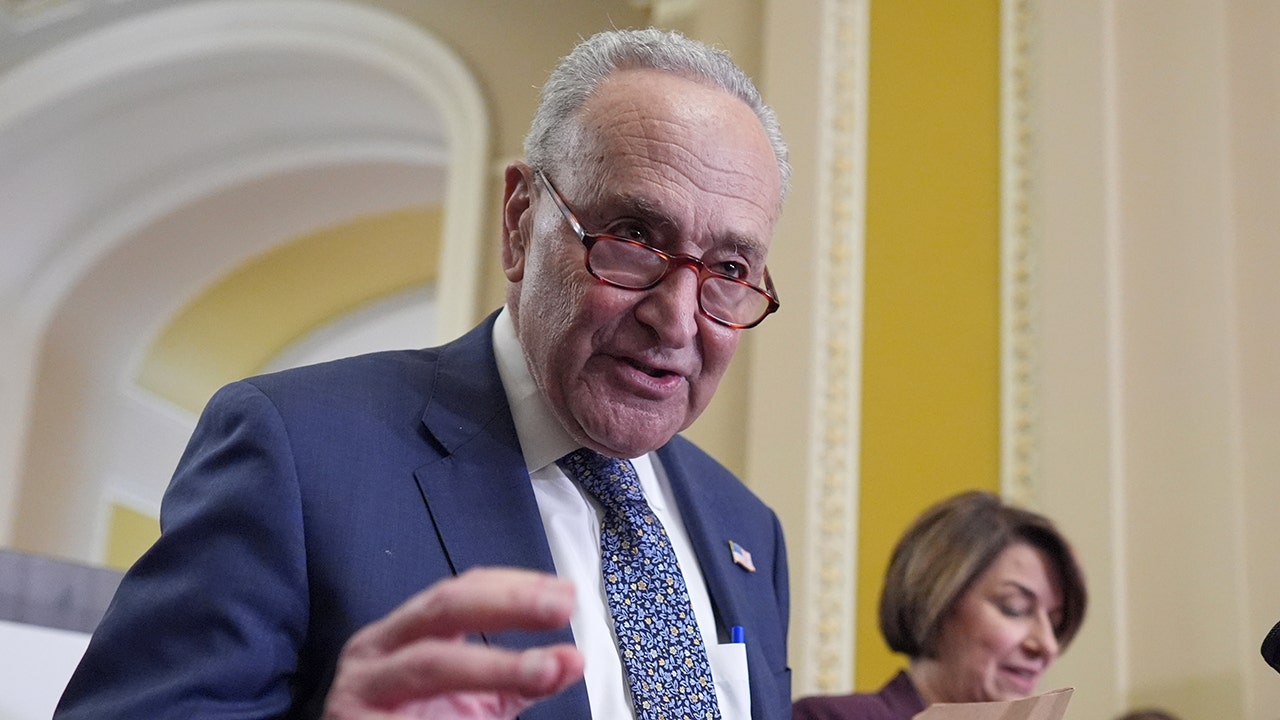Crypto
Does The SEC’s Cryptocurrency View Differ That Much From The Rest Of The World?

SEC Chairman Gary Gensler wants the cryptocurrency investing market to look more like the … [+]
Copyright 2012 AP. All rights reserved. This material may not be published, broadcast, rewritten or redistributed.
The Securities and Exchange Commission does not like exchanges issuing their own tokens, making commissions and fees off trades of other tokens, nor does it like exchanges acting as clearinghouses or custodians for their client’s cryptocurrencies. But this is usually how it goes in the rest of the world.
However, new rules in Hong Kong require exchanges to contract third parties or set up another entity to act as custodians of client funds for better investor protection. Traditional securities regulators are increasingly muscling in on cryptocurrency and want to bend it to look like old-school financial services.
The latest victory for Ripple Labs in their battle with the SEC shows that when it comes to cryptocurrency investing, the exchange players are saying they are not the NYSE and should not be treated as such. So far, this view is winning even as regulators hack away at it with more fervor.
While different than the Coinbase vs SEC case, the judge in the Ripple Labs case, Analisa Torres, ruled that some cryptocurrency transactions do not count as securities sales. Although the district court decision is not binding elsewhere, it does indicate that the SEC’s insistence that most digital assets are securities that should be registered–which is impossible to do under current regulations–can be successfully challenged, Forbes reported on July 13.
Without getting into the merits of either case, SEC Chairman Gary Gensler is of the mind that a cryptocurrency exchange is akin to any securities exchange – they exist to sell investable products, and as retail investors cannot buy and sell stocks directly from Nasdaq, nor can Nasdaq make a commission off retail investor trades, neither should digital asset platforms. Cryptocurrency exchanges are in a gray zone. (The big exchanges do charge fees off floor traders and institutional investors like BlackRock
BLK
Gensler views cryptocurrency markets through the same lens as traditional stocks and bonds, which would require existing exchanges to be splintered into different businesses. They may eventually be allowed to host tokens on their exchange but will have to set up separate entities for custodianship and clearinghouse activities for all investors, not just big-money investors. This seems to be the case.
“Most crypto tokens are subject to the securities laws. Most crypto intermediaries have to comply with securities laws as well,” Gensler said June 8 at the Piper Sandler Global Exchange & Fintech Conference. The Exchange Act requires intermediaries, in this case exchanges acting as brokers between cryptocurrency issuers and investors, to register as agents or satisfy requirements for exemption.
“In other parts of our securities markets, the exchange, broker-dealer, and clearing functions are separate,” Gensler said in what may go down as one of his most clear pronouncements of how he sees cryptocurrency investing platforms in the same light as traditional financial services. “Separation of these core functions helps mitigate the conflicts that can arise with the commingling of such services,” he said. “These crypto entities know the rules.”
They may know the rules, but they also think they are unclear and do not reflect the realities of this blockchain-based, finance market.
Coinbase CEO Brian Armstrong is in what may become an industry deciding lawsuit with the SEC over … [+]
The Washington Post via Getty Images
In April, Coinbase
COIN
“Anything is on the table, including relocating or whatever is necessary,” CoinDesk reported him saying on April 18 during Fintech Week in London. “I think the U.S. has the potential to be an important market for crypto, but right now we are not seeing that regulatory clarity that we need.”
Cryptocurrency Outside the U.S.
The grass is greener elsewhere for the cryptocurrency sector.
Justin Sun, Founder of Tron and Advisor to Huobi
HT
“The exchanges can accept clients and charge fees,” Sun says, referring to the broker/dealer setup.
In financial services, the legal entity that facilitates security trading is an agent acting on behalf of investors. When investors want to trade bitcoin, for example, an exchange that helps them make that transaction is akin to the investor’s agent, or broker.
Different regulators have different approaches, but the most common today is the separation of the exchange and custodian business. Separating exchange platforms from commission and fee-collecting financial services defeats the purpose of creating an exchange in the first place.
A Bybit display in Dubai as seen last year at an event in UAE city. ByBit is one of the top five … [+]
AFP via Getty Images
“Our license to operate an exchange in the United Arab Emirates is based on our license application, in which you can select digital asset facility service and custody together,” says Ben Zhou, co-founder and CEO of Bybit, a top-five exchange by volume, according to CoinMarketCap. “Once you get the license, it will be approved based on what you applied for. Whereas in Hong Kong, due to the local regulations, you will need different entities to apply for activities of custody and digital asset facilities,” he says, meaning the two must be separate entities — one handling the company’s financial assets and the other holding the financial assets of its investors. The SEC is against the commingling of funds.
“Whether companies like Coinbase and Gemini can survive the SEC requirements is a matter for further observation,” Zhou says.
Zhou said that Bybit is exploring custodian models where funds are segregated and held by a third party.
Other countries have lackluster rules, which make investing risky.
In Turkey, for example, the regulation for cryptocurrencies falls under the Capital Markets Board (SPK), with stricter rules enforced by the Regulation on the Non-Use of Crypto Assets in Payments.
“This rule does not ban cryptocurrency exchanges or investments, but they limit the intermediation of transfer transactions via payment and intermediary institutions,” says Yusuf Sevim, CEO at MetaTime, an Istanbul-based fintech building a new cryptocurrency exchange.
For exchanges, the rules regarding the separation of a company into an exchange operator, broker/dealer, and custodian can vary in Turkey.
“The regulatory landscape in Turkey is currently quite complicated and unregulated,” Sevim says, adding that companies that want to make a serious go in the digital assets space need to be in touch with regulators to make sure they do not run afoul of “non-rules” that become “rules.” Companies that are thinking long-term, even in emerging markets where there is more of a Wild West mindset, do not want to breach the trust of securities regulators. They know what would happen if they did, seeing million-dollar lawsuits waged from the U.S. against numerous exchanges, large and small. There is concern that the local securities regulators could do the same.
A New Hong Kong Model for Exchanges
The Hong Kong Securities and Futures Commission (SFC) launched a new virtual asset regulatory framework which took effect on June 1, 2023. This applies to any exchange offering services to clients in Hong Kong. Custody of client funds must be a separate business.
Reflection of an advertisement displaying a Bitcoin cryptocurrency token is seen in Hong Kong, … [+]
Getty Images
Under the new HK licensing regime, virtual asset service providers (VASPs), referring to all centralized virtual asset trading platforms, must be licensed by the SFC to offer any type of cryptocurrency service in the city. The SFC further encourages VASPs to seek both a Type 7 license for virtual asset trading services and a Type 1 for dealing in (traditional) securities so that they satisfy both potential security tokens and non-security tokens’ licensing requirements, says Stephan Lutz, CEO of BitMEX. Lutz is registering BitMex under this system now.
“The license standards are comprehensive and cover all expected areas with an underlying focus on user protection, including safe and segregated custody of assets,” Lutz says.
Under the new VASP regulatory framework in Hong Kong, exchanges must segregate custody of customers’ assets by a wholly owned subsidiary of the exchange entity or third party.
Since cryptocurrencies are decentralized, much of the responsibility for storing them safely falls on the owner. Some companies might require customers who have not accessed their account in a long time to type in a massive recovery password. If investors forget that password, they are locked out of their account. That would be akin to forgetting your Vanguard 401(k) log-in, and no longer having access to your retirement funds.
Coinbase has a separate custody service, but it is only for institutional clients with $10 million in digital assets. Coinbase Custody is a separate entity from Coinbase.
The SFC requires customers’ assets to be held in cold storage. Coinbase Custody is also cold storage, meaning it is not connected to the internet.
Hong Kong cryptocurrency exchanges must also ensure that their insurance policy, or equivalent financial protection, covers not less than 50% of all assets held in cold storage and 100% of all assets in hot storage online, which is subject to cybersecurity risk.
“The SFC’s custody regulations are part of its wider push to ensure that all customer assets are stored safely and not commingled with the assets of the exchange,” says Lutz about Hong Kong’s cryptocurrency rules. “It is a shared responsibility with the regulators from the lens of the law – building trust and co-creating an ecosystem that both can comprehend.”
For the Hong Kong crypto market, a custodian entity can be a subsidiary of the exchange entity. The custodian entity is responsible for holding customers’ assets, and the licensed exchange is the ultimate gatekeeping entity to assure the customers’ assets are segregated and protected.
“We find this structure clear and efficient as it avoids involving multiple entities within the same group seeking licenses for the same underlying business,” says Lutz.
As far as exchanges operating as broker/dealers, changing that model will disrupt the cryptocurrency financial services market. If this is ultimately what the SEC wants, they might as well just force Nasdaq to buy the main exchanges operating here.
“If more parties are needed to be involved in trades, the harder it can be for the industry to provide the seamless real-time trading experience the customers have been enjoying so far,” says Lutz from BitMEX.
Saad Naja, CEO at Boxwind, an upcoming London-based exchange that’s a part of Exinity group, a global fintech organization, said he understands Gensler’s view.
“But if you apply traditional financial regulations to the emerging market of cryptocurrencies, this simply will not work,” Naja says. “The unique nature of cryptocurrencies and blockchain technologies cannot be applied to these traditional regulatory frameworks. Companies like Coinbase and Gemini, which serve as both exchanges and custodians, have been instrumental in the growth and adoption of cryptocurrencies. They provide a user-friendly interface for buying, selling, and storing cryptocurrencies, which has made it easier for the general public to get involved in this new asset class. If the SEC insists on separating these roles, it could potentially disrupt the current business models of these companies, driving cost and complexity into these businesses,” Naja says.

Crypto
Truth Social Files for Cryptocurrency Blue-Chip ETF

Truth Social, the social media platform backed by former U.S. President Donald Trump, has submitted an application for a cryptocurrency blue-chip ETF S-1 filing. This move marks a significant shift for the platform, which has been primarily known for its social media presence, into the realm of cryptocurrency investments. The filing indicates that Truth Social is aiming to capitalize on the growing interest in digital assets, particularly among its user base, which includes a significant number of individuals who are already engaged with cryptocurrencies.
The Trust’s assets are primarily composed of Bitcoin (BTC), Ethereum (ETH), Solana (SOL), Ripple (XRP), and Cronos (CRO) held by the Trustee. Under the terms of the Trust Agreement, the Trust will allocate its assets to a percentage of the portfolio assets (allocation ratio) initially expected to be approximately 70% Bitcoin, 15% Ethereum, 8% SOL, 5% CRO, and 2% XRP. This allocation reflects a strategic focus on blue-chip cryptocurrencies, which are seen as more stable and less speculative compared to smaller, more volatile tokens.
The decision to file for a cryptocurrency ETF comes at a time when the cryptocurrency market is experiencing renewed interest. The market has seen a resurgence in activity, driven by factors such as declining interest rates and a more crypto-friendly regulatory environment. This shift has led many investors to reconsider their positions in cryptocurrencies, particularly in blue-chip tokens like Bitcoin and Ethereum.
The filing for a cryptocurrency ETF is a significant step for Truth Social, as it allows the platform to offer its users a more diversified investment option. By providing access to a blue-chip cryptocurrency ETF, Truth Social can attract a broader range of investors who are looking for a more secure and regulated way to invest in digital assets. This move also positions Truth Social as a forward-thinking platform that is adapting to the evolving financial landscape, where cryptocurrencies are becoming an increasingly important part of the investment ecosystem.
The submission of the S-1 filing is a crucial step in the process of launching an ETF. It involves providing detailed information about the fund’s structure, investment strategy, and risk factors to regulatory authorities. Once approved, the ETF will allow investors to gain exposure to a basket of blue-chip cryptocurrencies without having to directly purchase and manage individual tokens. This can be particularly appealing to investors who are new to the cryptocurrency market or who prefer the convenience and security of an ETF.
The filing also highlights the growing integration of cryptocurrencies into mainstream financial products. As more platforms and companies enter the cryptocurrency space, the demand for regulated and secure investment options is likely to increase. This trend is driven by the recognition that cryptocurrencies offer unique benefits, such as decentralization, transparency, and the potential for high returns, which make them an attractive addition to traditional investment portfolios.
In summary, Truth Social’s submission of a cryptocurrency blue-chip ETF S-1 filing is a strategic move that reflects the platform’s commitment to innovation and its recognition of the growing importance of cryptocurrencies in the financial landscape. By offering a regulated and secure investment option, Truth Social can attract a broader range of investors and position itself as a leader in the evolving world of digital assets.
Crypto
Top Cryptocurrency Stocks To Add to Your Watchlist

Crypto
Adecoagro Partners With Tether to Pioneer Renewable Energy Use for Bitcoin Mining in Brazil – Mining Bitcoin News

-

 Politics1 week ago
Politics1 week agoSchumer to force Senate reading of Trump's entire 'big, beautiful bill'
-

 Business1 week ago
Business1 week agoNew L.A. Trader Joe's opens across the street from … another Trader Joe's
-

 Technology1 week ago
Technology1 week ago5.4 million patient records exposed in healthcare data breach
-

 Politics1 week ago
Politics1 week agoTrump administration takes on new battle shutting down initial Iran strike assessments
-

 World1 week ago
World1 week agoCommissioner and MEPs in Budapest to challenge Orban’s Pride ban
-

 Technology1 week ago
Technology1 week agoTesla says it delivered its first car autonomously from factory to customer
-

 World1 week ago
World1 week agoUganda’s President Museveni confirms bid to extend nearly 40-year rule
-
News1 week ago
Live updates: Republicans race to meet Trump’s July 4 deadline for agenda bill | CNN Politics




















